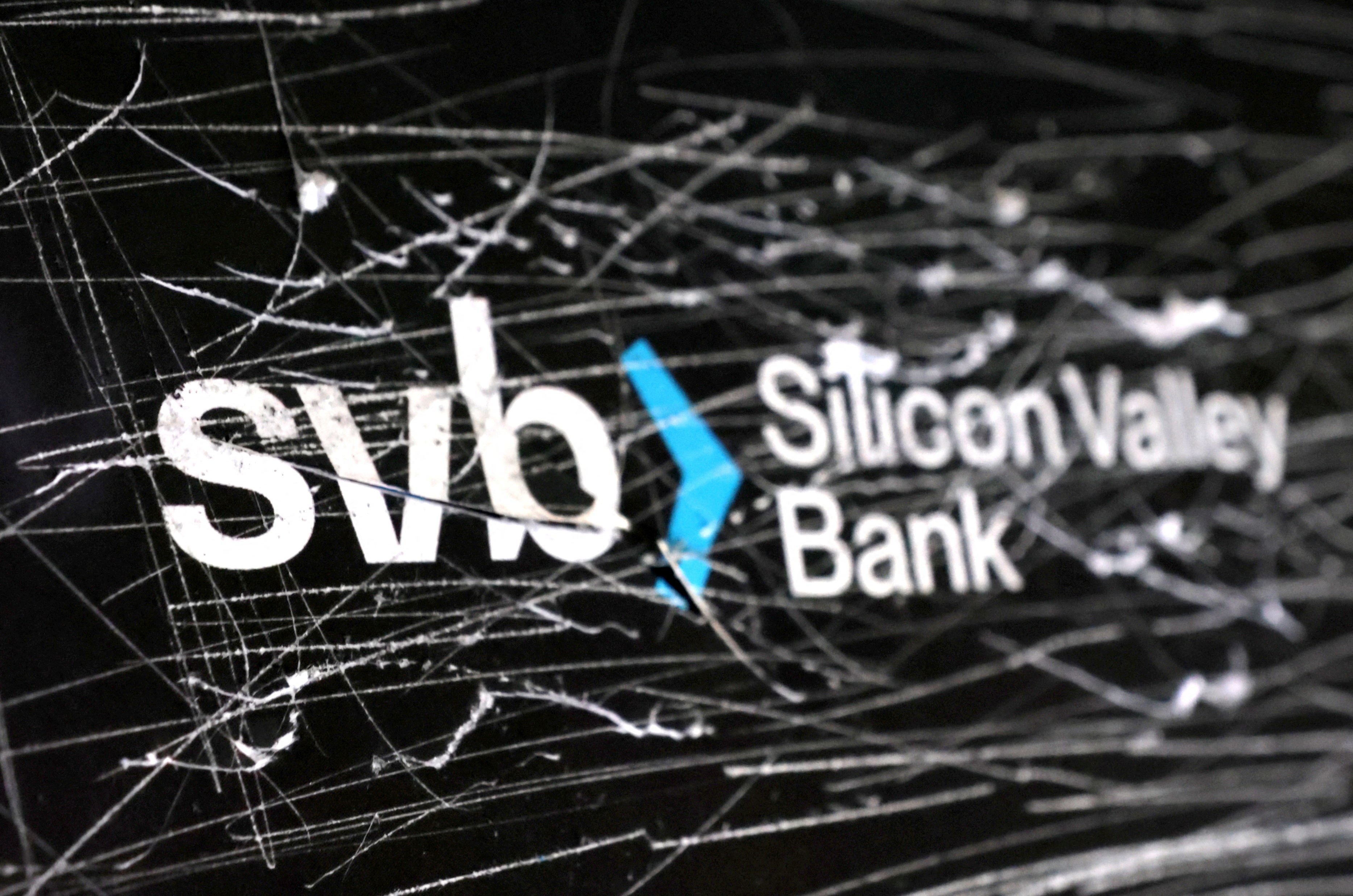The Silicon Valley Bank collapse should act as a warning
Imagine there was no rescue deal, what then? asks Chris Blackhurst


There was a day in 2008 when I went to visit what was then the UK financial watchdog, the FSA, at its headquarters in Canary Wharf. The topic under discussion was Northern Rock, the mortgage lender that was in crisis.
After that, I crossed to the other side of the dock at Canary Wharf, for lunch at Lehman Brothers. Over a silver-service meal that would have done a Michelin inspector proud, my companion expressed their pity for the regulator; how the people working there were not paid enough; how Northern Rock, which was a particularly aggressive extender of credit, was a risky business model. As the liveried waiters poured the most expensive wines, all seemed well and content in Lehman land.
A few weeks later, Lehman went bust, and we were treated to those pictures of employees carrying out their boxes of personal belongings as the world juddered on its axis.
The point of me relaying this now is that it was no coincidence. A rise in US interest rates accompanied by defaults on sub-prime loans had caused the wholesale credit market to go into spasm. Northern Rock was caught; but so, then, was Lehman.
This weekend, we’ve had a rude reminder of those days, with the collapse of Silicon Valley Bank (or SVB) in the US. Suddenly, the word that reared its head back then and was the link between Northern Rock, with its customer base in the northeast of England, and the imperious Wall Street giant, Lehman, was being used again: “contagion”.
The last 48 hours have seen financial authorities around the world scrambling to avoid another outbreak of contagion, the ripple effect that goes through the industry as one bank fails and sends out waves that take others down.
It looks, for now, as though that may have been avoided. HSBC’s purchase of the UK end of SVB has restored calm, at least in the UK tech sector. But it would be dangerous indeed if everyone heaved a sigh of relief and quickly forgot about SVB: “Small US bank goes under, no casualties, move on.”
What we should stick to is the panic in that period when it was not clear what was going on; nobody knew whether the entire UK tech sector was at risk. Imagine there had been no rescue deal: what then? That’s what we, or rather the authorities, should be focusing on.
By banking standards, SVB is a minnow, a specialist banking provider for the tech industry. Many of its users, lenders and deposit-makers are start-ups. But it also services large funds that concentrate on investing in tech.
In the UK, it had 3,500 customers. Not a lot, but many of those were fledgling businesses, though some were much bigger. They all employ people and have suppliers. The collapse of this tiny institution had the power to cause catastrophe, predicating job losses, bankruptcies, and further financial and corporate disasters. At a stroke, virtually the entire UK tech sector could have been wiped out, setting us back years in terms of innovation, future employment and wealth creation.
It’s a wake-up call. The banking crisis of 2008 has long gone; memories recede; many of the actors then have since left the stage. Complacency sets in; banks don’t hit the buffers. Well, they do, and when they do, in contrast to what happens when any other type of business goes under, the consequences can be all-engulfing.
The morning after it was first reported, on the BBC evening news, that Northern Rock was in trouble, long queues formed outside its branches. Mervyn King, the Bank of England governor at the time, is supposed to have queried what all those people were doing. They’re getting their money out, he was told. Something similar happened this weekend, with businesses phoning around, desperate to know if their deposits with SVB were safe.
After 2008, governments everywhere were full of bold intentions. They would crack down, there would be no repetition, the rules on the amount of capital that the banks must always keep in reserve would be tightened. Similarly, lending requirements would be strengthened, bank bonuses would be capped, risk and potential exposure would be heavily scrutinised and reduced, regulators would be bolstered.
For a while, it appeared as if that might be true. But once they’d eaten humble pie – nowhere near enough, in the opinion of many – the banks and their lobbyists set to work. The result is pressure to relax these Draconian, business-impeding, petty regulations. Nowhere is that more true than in the City of London, which is pleading constantly for these barriers, as they’re portrayed, to be lifted.
At the same time, the various watchdogs remain woefully underresourced, struggling to keep up with a financial services industry that continues to grow ever bigger and become ever more complex and intertwined.
Rishi Sunak, a banker by background – one who learnt the ropes at a very different end of the market from SVB, at Goldman Sachs – should take heed and not succumb to the banks’ demands.
If anything, having seen the damage even a tiddler can do – and the industry is full of small, specialist banks like SVB – he should stiffen his spine, refuse to relax the rules (if anything he should make them tighter still, if the review of SVB shows that they ought to be), and boost the policing of the sector.
For a period at the weekend, the world was teetering again. It still could be – it’s too early to tell if the US fallout from SVB can be stemmed, and if not, where that might end.
There is one certainty: SVB is a warning that we would be beyond foolish to ignore.
Join our commenting forum
Join thought-provoking conversations, follow other Independent readers and see their replies
Comments
Bookmark popover
Removed from bookmarks